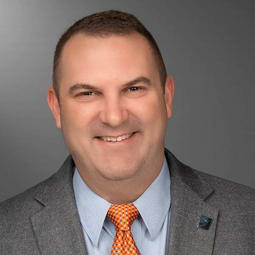
Kevin Schug
Shimadzu Distinguished Professor of Analytical Chemistry, The University of Texas at Arlington, USA
False

Shimadzu Distinguished Professor of Analytical Chemistry, The University of Texas at Arlington, USA
Advice for Future Analytical Scientists: Check Your Ego at the Door
Interesting parallels can be drawn between generational labels and the field of analytical science. The analytical scientists of the Baby Boomer generation can be credited with a lot of firsts; the latter half of the 20th century saw massive development, especially in the fields of chromatography and mass spectrometry. Gen X analytical scientists bridged the gap between the analog and digital worlds. We grew up without internet and smart phones; we had to assimilate them and learn to use them later in life. The analytical scientists in generations that followed have stepped into a field marked by integrated technologies, automation, cloud-based data, and powerful analytical instruments capable of measuring exceedingly small quantities in massively complex samples. The path forward to innovation no longer comes solely in the development of new techniques but in their integration with other techniques and applications – all supercharged with the power of modern computation. The path forward is a more collaborative one, in contrast to the solitary efforts that could win a scientist notoriety 50 years ago.
Analytical scientists of the future cannot afford to be egotistical and self-centered. Many scientists, particularly some of the most successful ones, seem to hold themselves up on a pedestal. Recognition and adoration may be warranted for shepherding major scientific breakthroughs, but excessive self-promotion and an “I demand respect!” attitude are dangerous behaviors to model for future scientists. Whether they know it or not, egotistical scientists alienate themselves. This behavior leads to less collaboration and less opportunity.
Analytical measurement science is essential to provide insight into nearly any scientific or engineering process. As analytical scientists, we have become masters of some techniques, but we can hardly possess all the expertise needed to speak in depth about all the potential application spaces where they can be used. This trend is only going to continue and increase. If you are an up-and-coming analytical scientist, you need to be grounded in the fundamentals of your science, and you must be able to cooperate and work with others. Your new credentials or position may be a recognition of your accomplishments, but it should not be an impetus to start building your pedestal so you can look down on others. If you do this, you will quickly find your sphere of opportunities and interactions shrinking.
The best way to progress analytical science is not just to tout the major advancements and positive aspects of some work you have completed, but to reflect significantly on its shortcomings. The best-communicated science will spend just as many words delineating limitations and next steps as it does emphasizing novelty and impact. More respect will always be given to the scientist who is willing to openly admit the shortcomings of their work than the one who dismisses criticisms and becomes defensive when challenged.
I would like to impress upon future analytical scientists that they are comfortable with what they know but also readily acknowledge what they do not. In this rapidly evolving world, analytical scientists have a clear place to play alongside other professionals. In the words of Steve Martin, “Be so good, they can’t ignore you,” but understand that being good means thinking holistically and rationally about a problem and its solutions, without ego.
Receive the latest pathologist news, personalities, education, and career development – weekly to your inbox.

False
False
False